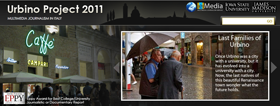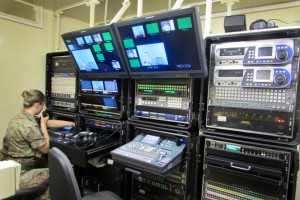I Said, I Persuaded, I Conquered

- Morgan Lynch
- On June 25, 2014
NATO places emphasis on communication-based missions in Afghanistan
PESARO, Italy – The motto “Dixi, Suasi, Vici” (I Said, I Persuaded, I Conquered) is a far cry from Roman Emperor Julius Caesar’s “Veni, Vidi, Vici” (I Came, I Saw, I Conquered). But for Italy’s 28ºReggimento “Pavia” (28th Army Regiment “Pavia”), named after a town in Northern Italy, “I Said, I Persuaded, I Conquered” is their motto, and persuasion through tactical communications is becoming their NATO-based mission in Afghanistan.
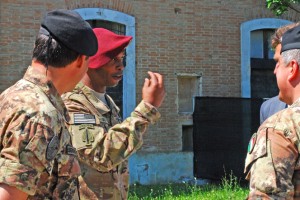
American US Army Captain Damon Hart speaks to Colonel Giovanni Gagliano and other Italian soldiers who together work in Afghanistan.
“There’s no way we can end wars and prevent conflicts with guns,” says Captain Damon Hart, one of ten U.S. Special Operations officers training alongside the Italian soldiers at the “Pavia” headquarters in the Adriatic coastal city of Pesaro. The American officers have come from the army base in Fort Bragg, N.C., to train with their Italian counterparts, to assist them in obtaining NATO Special Operations status by July 1, 2014. With NATO certification the regiment will be deployed to Afghanistan to utilize high technology communications systems in a peace-making role in that war-torn nation. Many NATO countries, including the United States, are involved in similar training and activities.
Colonel Giovanni Gagliano of the “Pavia” Regiment says their mission is “to bring peace, build a new society”. When asked about working with the Italian unit, Captain Hart replies, “You have to love what you do”. He has worked previously with Italian troops in Germany and believes it is important to reduce the learning curve among NATO countries, so they can easily cooperate on missions in Afghanistan.
The American officers are training with the Italian officers for two weeks. Their base at Fort Bragg has similar print, radio, and television capabilities, only on a larger scale. Their goal is to understand, “the place where they are, what the right message is, and what means to use in order to communicate,” explains Colonel Gagliano.
The communication methods that the soldiers of the “Pavia” will use include:
- Distribution of leaflets by soldiers while they are parachuting to the ground from 25,000 feet
- Messages broadcast through loudspeakers that have a land-based range of 1.5 kilometers
- Face-to-face conversations with the Afghan people
- Television and radio broadcasts
The regiment’s television and radio deployable containers look like professional studios transformed to fit into various camouflage boxes. In these tiny workspaces the soldiers can host interviews and produce news pieces that are either prerecorded or live. The radio container has two rooms, a sound booth and an editing area that can be used to transmit commercial radio programs with popular songs provided to the soldiers.
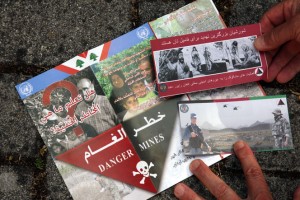
These fliers, destined for towns and villages in afghanistan, contain warnings about nearby IEDs in Pashto and Dari. They contain mostly pictures for those in rural areas who are illiterate.
A typical leaflet might contain information about Improvised Explosive Devices (IEDs), homemade bombs that were not constructed or deployed by the military. The leaflets contain mostly pictures in order to be understood by literate and illiterate Afghans alike, with the goal of ensuring each resident’s safety. Most of the “Pavia” regiment’s flyers are printed in a facility on the base in Pesaro and at the rate of 15,000 flyers per hour. The soldiers also have a smaller, deployable printing container that they can use in the field.
But the messages conveyed through TV, radio, loudspeakers, or flyers are not always understood. According to Major Antonio Caragnano, one difficulty is an information gap between young Afghans attending school in the cities and elderly mostly illiterate Afghans living in the rural mountain areas. The educated urban citizenry can understand complex messages about the ongoing conflict and are targeted with detailed video and print information.
By contrast, Lt. Colonel Cartini recounts meeting an elderly man in the mountain regions who thought Cartini was a Russian soldier returning to the area after many years. The elderly man did not realize that the Russians had pulled out of Afghanistan and NATO forces were involved instead. In cases such as these, interpersonal communication is often needed. “Pavia” participates in role-play exercises to develop ways to respectfully and effectively speak with people of differing ages, genders and cultures.
Other NATO countries with communications bases such as Germany, France and Great Britain, want to use their technology to reassure the Afghan citizenry that they are there to help them. NATO Secretary General Anders Fogh Rasmussen insists the coalition “won’t fall off a cliff at the end of 2014.” U.S. President Barack Obama has set that date as the formal end of the combat mission in Afghanistan.
In the meantime and, according to Rasmussen, NATO allies are taking advantage of the fact that “the Taliban are on the defensive in the information space.”
Communication-based missions are “becoming much more important than before,” claims 2nd Lieutenant Grifa of the Italian regiment.
President Obama announced on May 27, 2014, that he plans to withdraw the last American troops from Afghanistan by the end of 2016. Italian Defense Minister Mario Mauro says 500 to 700 Italian troops will remain after other NATO troops withdraw. There are currently about 3,000 Italian troops in Afghanistan.
Mauro reasons that, “We can’t turn our backs on this country, if we don’t want the atrocious dictatorship of the past to return.” The soldiers from “Pavia”will attempt to fend off “the atrocious dictatorship” to which Mauro refers, by using their communication skills and technology. Major Caragnano hopes, in the end, “with a word you can reach more than with a bullet.”
Slideshow
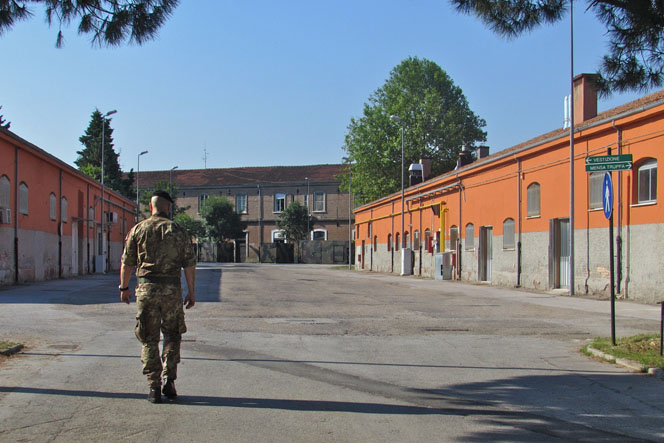
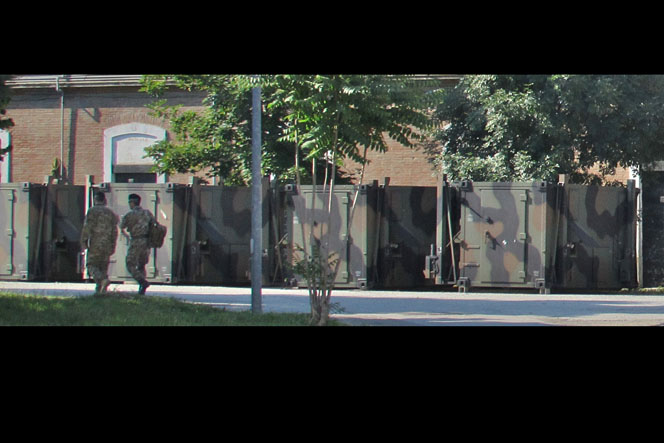
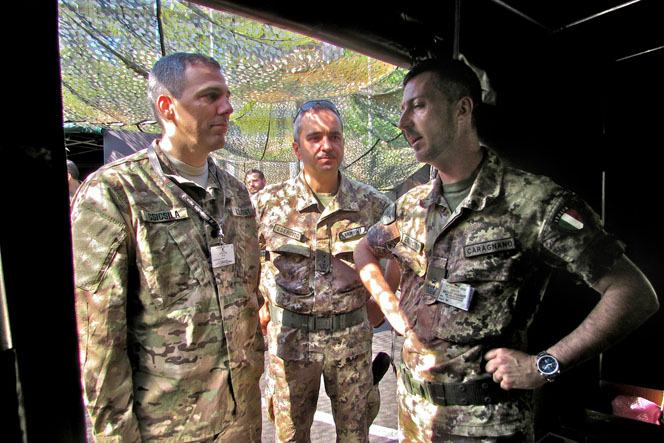
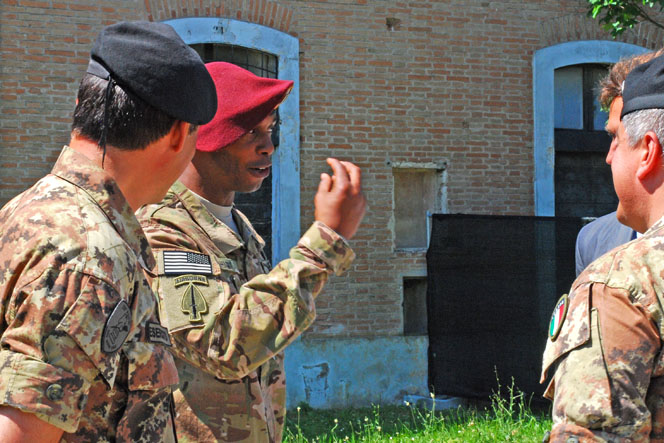
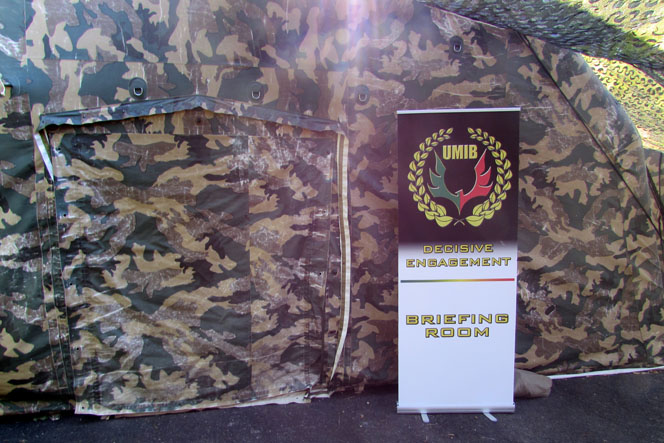
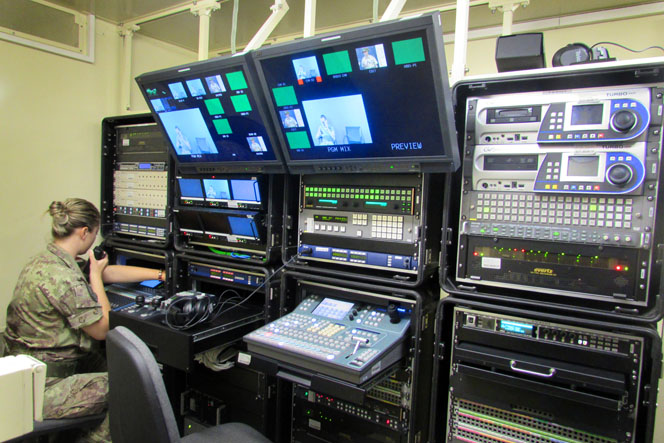

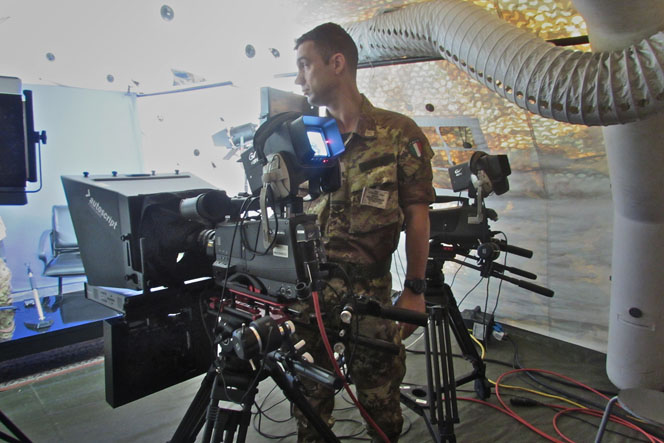
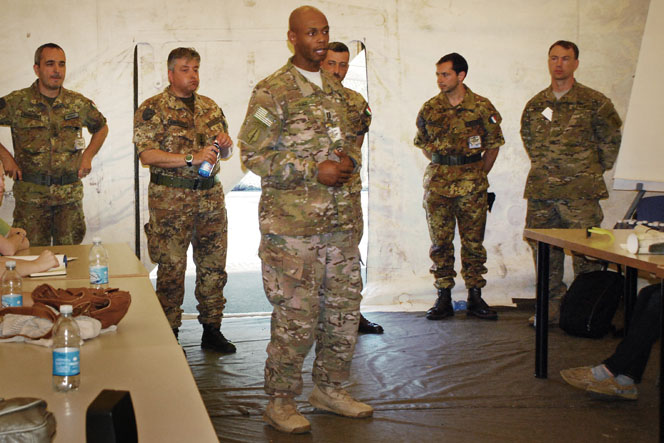
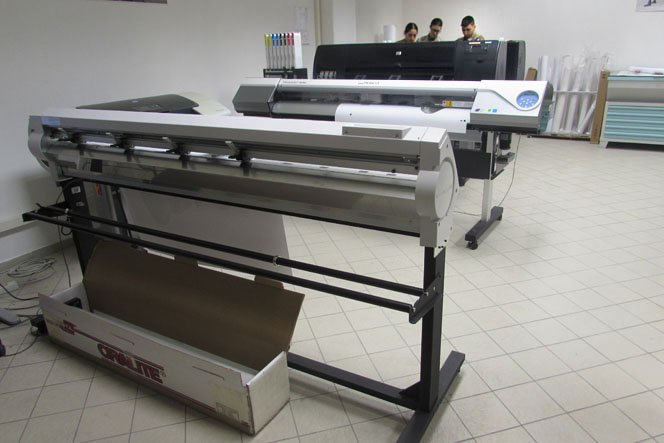
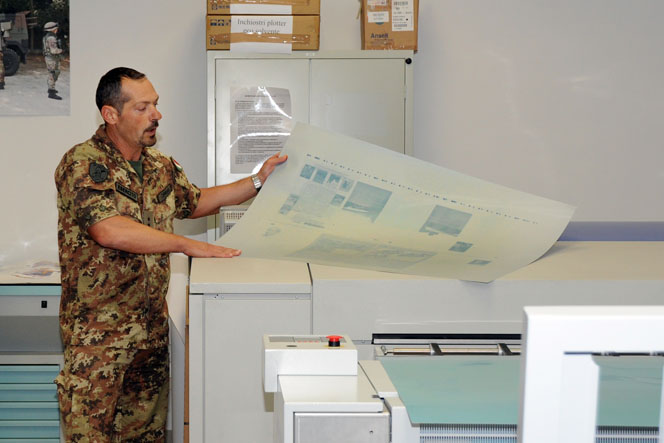
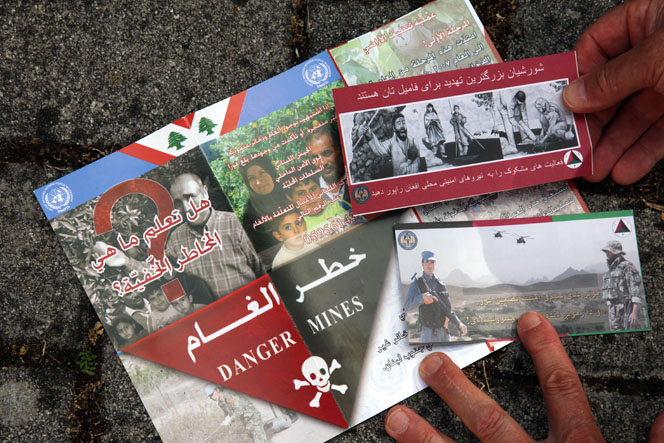
Video
Order Urbino Now Magazine 2014
 You can read many articles appearing on this website in Urbino Now Magazine 2014. To order a full-color, printed edition, please visit MagCloud.
You can read many articles appearing on this website in Urbino Now Magazine 2014. To order a full-color, printed edition, please visit MagCloud.Reporters
Can Aydoğan
Wes Casson
Olivia Condon
Katrina Delene
Klaire Dixius
Kylie Donohoe
Morgan Doss
Amanda Ellison
Victoria Ferris
Krista Flentje
Hailey Guyovich
Alli Kielsgard
Begum Kilicci
Meredith Kipp
Morgan Lynch
Olivia Lynch
Taylor Main
Olivia Martzell
Leslie McCrea
Kendall McNamee
Mary Menchel
Carson Monroe
Erin Mordhorst
Cori Noble
Urvi Patel
Kelsey Peck
Chris Raimondi
Summer Roberts
Whitney Roberts
Susan Rogowski
Jazmin Sahagun
Jamie Stotski
Landon Walker
J.J. Wilson
Promotional Video Project
Dimitri Daoulas
Jenna Fries
Cora Letteri
Abby Riggleman
Malorie Stone
Natasha Virdy
Story Categories
Past Urbino Projects
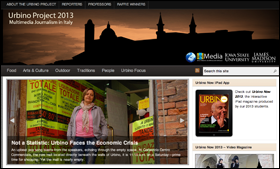 Read stories and view the photography and video from last year's website.
Read stories and view the photography and video from last year's website.
2013 Urbino Now App
 Interactive Apple iPad app covering culture and travel for visitors to Urbino and Le Marche.
Interactive Apple iPad app covering culture and travel for visitors to Urbino and Le Marche.
2012 Website
 Read stories and view the photography and video from last year's website.
Read stories and view the photography and video from last year's website.
2012 Urbino Now Magazine
 Explore past coverage from the 2012 edition.
Read all 30 magazine articles online or visit MagCloud to order a printed copy of Urbino Now 2012.
Explore past coverage from the 2012 edition.
Read all 30 magazine articles online or visit MagCloud to order a printed copy of Urbino Now 2012.
2011 Website
